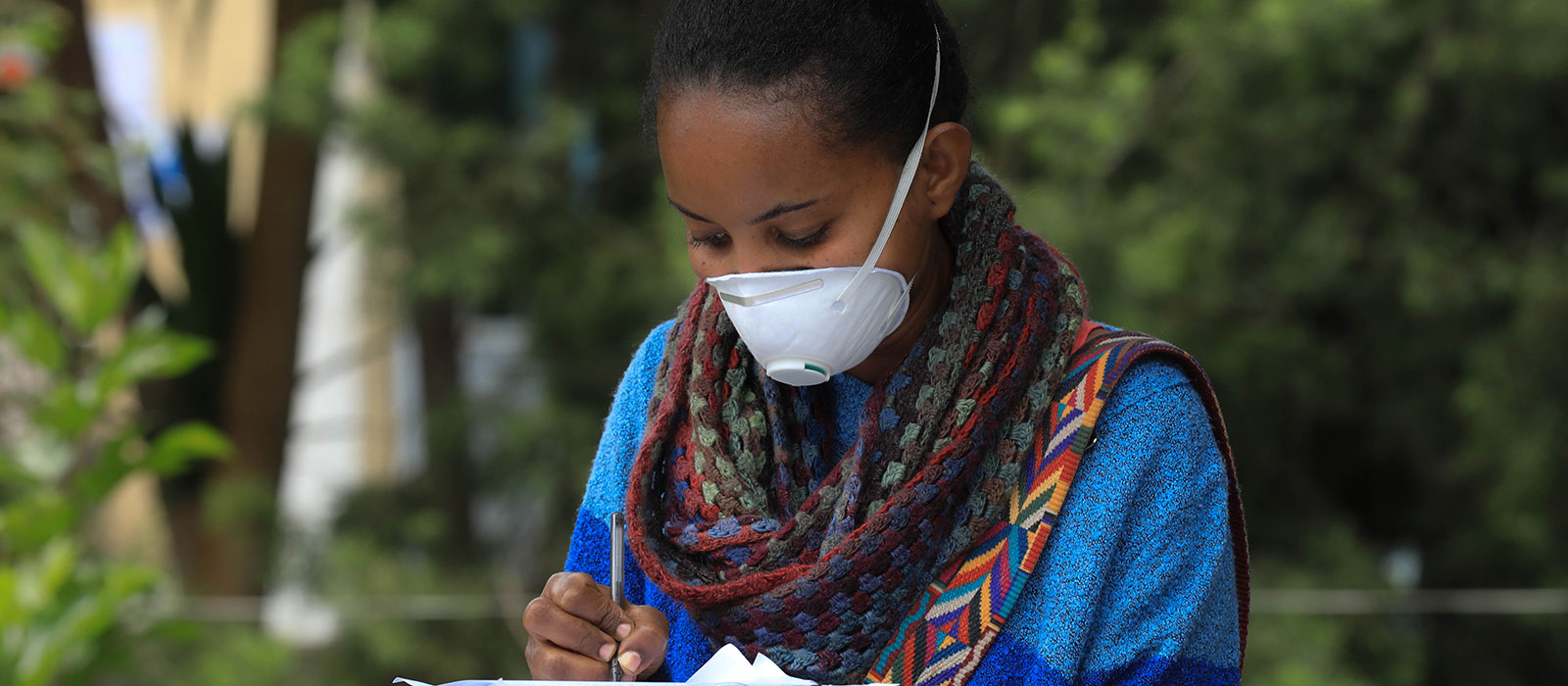The critical task for Higher Education institutions has been in their internal adaptation to the pandemic and how to stand in solidarity with local communities. The realities of the pandemic have forced universities to rethink their ideas of providing access to all students and ensuring that no one is left behind.
Higher Education institutions have been forced to think differently and contribute innovative responses to the #pandemic @GJFras
Tweet
A thematic review of articles published by the University World News onhigher education on the African continent in 2020 conducted by the Nelson Mandela University’s Engagement and Transformation office revealed the magnitude of the impact on universities’ operations resulting from government lockdowns across the continent. The resulting movement to online learning platforms highlights a digital divide that demonstrates pervasive access inequalities, owing to the mass closure of institutions and the subsequent phased-in return of students and staff. Nonetheless, institutions across the continent contributed to studying the novel coronavirus, with calls being made for more Africa-driven research to promote inquiry into African knowledges and promote further inquiry beyond Western discourses. The thematic review revealed that universities in Africa responded to the global challenge on several fronts through the provision of COVID-19 testing facilities and care centres and the local production of personal protective equipment and ventilation solutions.
A note is made of the collaborative efforts of higher education institutions across the continent that partnered with local telecommunications companies to aid in the shift to online learning. Adding to this, broad-based partnerships were fostered to draw in assistance from civil society, businesses, and communities. During this time, the universities that stood out were those whose management and leadership structures adopted inclusive decision-making and apt responses to the crisis within their local contexts. Such institutions were at the forefront of promoting proactive institutional responses endorsed by upper governing structures, which promoted innovative solutions to the pandemic.
With a changing landscape, the sector now faces a critical necessity for transformation that ought to promote social justice principles by encompassing inclusivity, equitability, accessibility, and connectivity due to the technological divide. The response of universities in collaborating with local communities and the implication of reciprocal engagement refocuses the raison d’être of higher education institutions as part of and in service to communities.
At Nelson Mandela University, two institutional committees were put in place to further the University’s engagement philosophy in its internal and external responses to the COVID-19 pandemic. In understanding the university’s vital role in the success of both its student body and the community at large, the COVID-19 Coordinating Committee (CCC) facilitated the University’s response to the pandemic in support of state and other efforts at the local, provincial and national level. By establishing a convergence fund, Nelson Mandela university collaborated with local and international partners to find solutions to the challenges within Mandela Bay, with a particular focus on the informal settlements and the realities of inequality and unequal access to adequate healthcare. Considering that the COVID-19 pandemic presented more challenges than the effect on the national health system, University academics and support staff thus shared their expertise on various other aspects of the pandemic and its impact.
Internally, the multi-stakeholder Coronavirus Task team (CTT) coordinated several media campaigns on education and awareness, information on alert levels and vaccine myth bursting. Perhaps the most significant internal challenge within Mandela university was dealing with the digital divide. An estimated 35% of the student body did not have access to laptops or smartphones to continue with their studies online – a much higher percentage than most other universities across the country. With the uncertainty surrounding the pandemic and the ongoing changes in lockdown regulations throughout 2020, a “two pathway” system for learning was adopted to ensure a continuation of learning and teaching. Pathway 1 catered for students with suitable devices – laptops and smartphones – and connectivity and could complete most of their learning digitally. Pathway 2 learners, on the other hand, were given greater access to intensive face-to-face teaching. This helped reduce numbers in on-campus venues for social and physical distancing purposes in a phased return of students to the university campus.
The resulting movement to online learning platforms highlights a digital divide that demonstrates pervasive access inequalities @GKFras
Tweet
If anything, COVID-19 has provided higher education institutions with an essential lesson in preparedness. It has revealed that crisis solutions must be flexible, inclusive and collaborative. The ability for institutions to collaborate on a national, multilateral level is vital to ensure broad-based strategies. Moreover, long-term strategic planning is required to provide efficient and inclusive solutions whilst remaining responsive enough to adapt to changes. While virtual learning on the continent is still far from the ideal, the pandemic has taught us that the digital divide can be narrowed by catering for basic functionality through innovative and collaborative solutions across universities, industry and government.
Emergency funding for a pandemic like this would only be part of the solution; we would have to overcome silo thinking to foster institutional abilities to navigate crises. The collaborative efforts of Nelson Mandela University in South Africa show the importance of transdisciplinary and multilateral collaboration. To leave no one behind, we should ensure that those who are already in vulnerable situations are not forgotten because crises situations tend to exacerbate the inequality gap.
Geraldine J Fraser-Moleketi is the chair of the Committee of Experts on Public Administration (CEPA) and the Chancellor of Nelson Mandela University. She prepared this blog with input from Nelson Mandela University colleagues.


